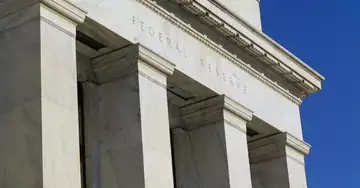Circle Internet Financial argues that the Federal Reserve should refrain from launching its own digital dollar because it could stifle private sector efforts like Circle's to manage their own dollar-based tokens.
And Circle, the issuer of the USDC stablecoin, said in a statement to the Fed that its token already "fulfills many of the potential benefits" of a central bank digital currency (CBDC) in the United States.
"A number of companies, including Circle, have leveraged blockchain technology to support trillions of dollars of economic activity with fiat-referenced stablecoins," the company told the Fed in a letter published Wednesday, responding to the Fed's request for comment on a January report. "The Federal Reserve's imposition of a CBDC could have a chilling effect on new innovation."
The stablecoin industry has suffered collateral damage recently from the ugly collapse of TerraUSD (UST), even though it was an algorithmic stablecoin and not one backed by reserves. Boston-based Circle has claimed to the Fed that its stablecoin - which ranks second in global market capitalization - is backed by "cash and U.S. government obligations with short maturities," and the company regularly assures the public with certifications about the contents of those reserves.
"USDC does not diminish the dollar's role as the world's reserve currency; in fact, it supports it," the company argued.
Circle also pointed to the potential damage a digital dollar could bring to traditional banking, which the banking sector itself pointed out in its letters. The stablecoin issuer left the Fed with a comment often heard in technology-intensive industries:
"It may be challenging for the Federal Reserve to issue a CBDC for a technology standard that does not quickly become obsolete given the pace of technological advancement," Circle argued in its letter, in which the company added that it supports a comprehensive regulatory structure for cryptocurrencies in the United States.
Fed officials have routinely said the U.S. central bank does not intend to move forward with a CBDC without support from the White House and Congress.

